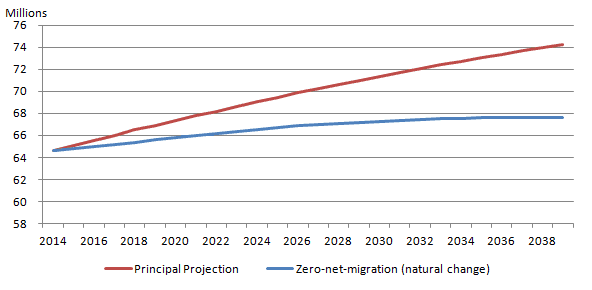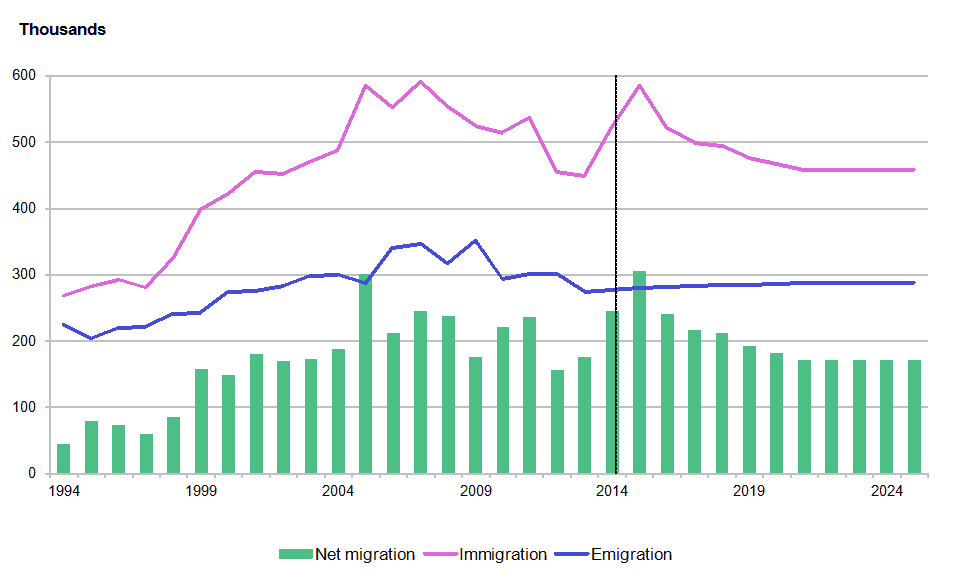Britain’s population is set to surge by at least another 10 million over the next 25 years, with new estimates from the Office for National Statistics (ONS) predicting a Britain populated by 74.3 million people by mid-2039, mostly from migration.
While the official population estimate of Britain is 64.9 million, critics argue that this doesn’t take into account those in the country illegally, and those who the government simply has no way of accounting for. The country’s population may actually be far higher than estimated.
In 2013, the ONS said that the country’s population could be as high as 78 million by 2037.
But the most interesting part of the statistics today is the admission that “net migration accounts for 51 per cent of the projected increase over the next 25 years, with natural increase (more births than deaths) accounting for the remaining 49 per cent of growth.”
This means that over the course of the next 25 years, the non-native population of Britain will be outgrown in numerical terms by foreigners.
The ONS notes: “International migration has directly contributed to over half (56%) of the total population change in the UK in the last decade (2004 to 2014). The remainder of the change is a result of natural change (births minus deaths) in the population and “other” change”.
And critics who claim the UK’s population would shrink without the current open borders are disproved by the latest release. The ONS reports that with a zero net migration figure, that is no overall increase in the UK population through migration, the country would have a stable population rate. Of course, no reputable organisation or political party calls for “zero net migration” in the first place, but rather, to reducing migration into the UK from the hundreds of thousands per year, to the tens of thousands.
And the minutes of the meetings between a panel of migration experts also skewer the Prime Minister David Cameron’s recent claims that even outside the European Union, the British government would not be able to reduce net migration. The minutes read [emphasis added]: “Other factors suggested by experts that might impact on migration included government policy, EU membership, the need for labour to support the elderly population, an increase in alternatives to a UK higher education and a reduction in the demand from other countries for UK emigrants,” adding: “In the short term, the UK will keep outgrowing the EU with no expectation that will stop as long as the UK remains part of the EU.”
But bizarrely, the ONS also seems to base its numbers on a decrease in immigration to the UK, from a peak of nearly 600,000 in 2015, down to around 460,000 in 2022. This, perhaps, is because the data is informed by the International Passenger Survey, a dubious way of measuring, let alone predicting future migration rates:
The ONS states on its website: “The national population projections are not forecasts and do not attempt to predict the impact that future government policies, changing economic circumstances or other factors (whether in the UK or overseas) might have on demographic behaviour. They simply provide the population levels and age structure that would result if the underlying assumptions about future fertility, mortality and migration were to be realised.”



COMMENTS
Please let us know if you're having issues with commenting.